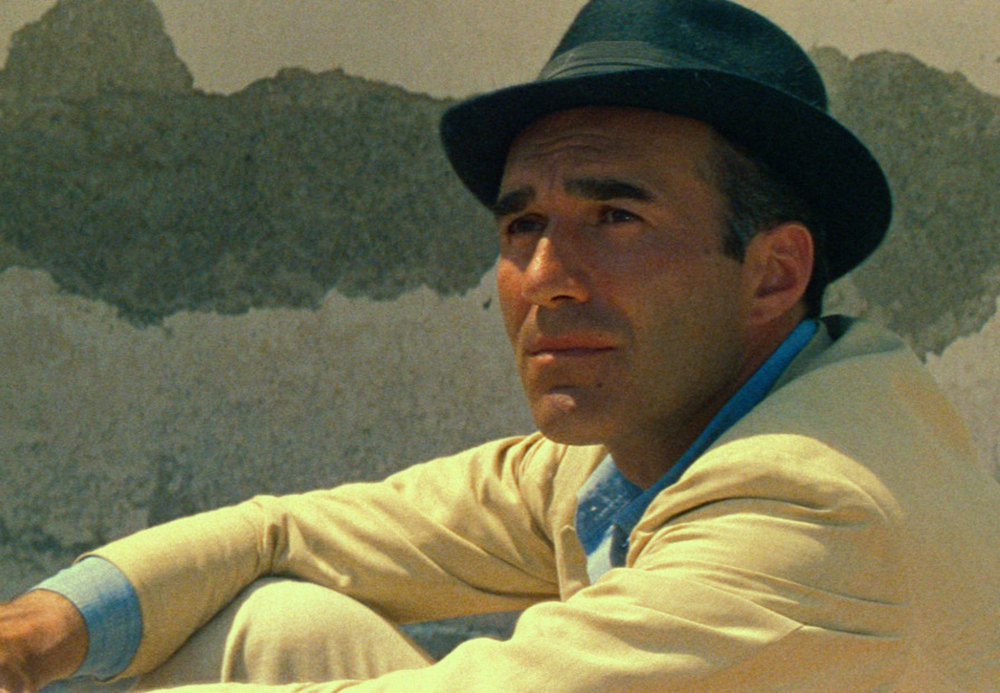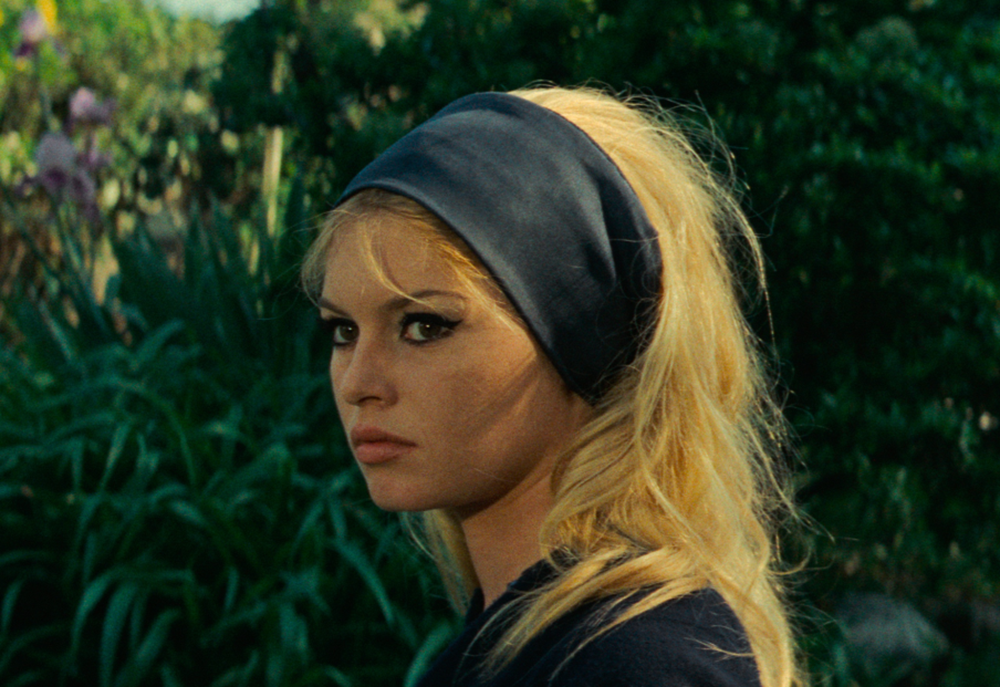The stunning photography (by Raoul Coutard) and solemn, sweltering score (Georges Delerue) amplify the film’s agonizing mood. And the narrative fireworks come not just from the singular Brigitte Bardot, but Jack Palance as the arrogant, insufferable producer Jeremy Prokosch. Bardot’s Camille is married to Paul (Michel Piccoli), a stage writer who’s called in for a rewrite of a troubled production. Fritz Lang plays … Fritz Lang, adapting “Odyssey” for the screen despite the artistic friction with the brash, authoritative Prokosch. (It was Prokosch who’d insisted that only a German could direct “Odyssey”). This is no “8 1/2″ imitation, however. Godard repeatedly tugs at the rug beneath the feet of the actors and the audience, foreshadowing catastrophe for the reckless Prokosch, feckless Paul and incandescent Camille.
Marital Joy and Misery
When the scale of the exteriors — Cinecittà Studios in Rome at the beginning and the Casa Malaparte on Capri Island towards the end — threatens to overwhelm the plot, Godard pulls back, centering the marital joy and misery of Paul and Camille. The most palpable sense of connection happens in the famous opening scene, with the camera scanning Bardot’s body while she asks Paul what he likes most about her. The sequence, which flickers from dark to light, injecting vibrant reds and blues, served as a bit of an in-joke, since Ponti had requested a Bardot nude scene. Instead, what Godard withholds (not much, actually: it’s all B.B. butt and legs) heightens the erotic element, the couple’s banal chatter spiced up with the bursts of color and the roaming, horny camera lens.
Pessimism is “Contempt’s” resting worldview, and even the most pragmatic character (Lang) decries his profession, a director-for-hire who participates in the business of “selling lies.” That’s about as honest as a person gets in the film, although even Prokosch is not shy about his intentions with producing (prestige) or his pursuit of Camille (triumph). The problems with Camille and Paul start once Prokosch meets Camille. He insists she ride with him back to his villa, and that Paul take a taxi. Paul passively submits to Prokosch’s blustery demand while Camille seethes with distress and disgust at his aggressive flirtation. Godard doesn’t show what happens between Camille and Prokosch in private until the end, but Camille makes her dissatisfaction known. The widening divide is dramatized in a bravura interior scene which tracks them like cat (Paul) and mouse (Camille) throughout their chilly, Bohemian apartment, resembling an inescapable maze.
Plot was Never the Whole Point of the Film

The drawn-out arguments are a sight to behold — the framing and blocking dazzle; but witnessing two adults nag each other often becomes a chore. Godard doesn’t disclose much about the source of Camille’s displeasure besides Paul’s detachment and refusal to stand up for her in front of Prokosch. And while that risks reducing her character to an “ol’ ball and chain,” Bardot rises above that trope. She has a melancholic gaze that stops time, lending visible disappointment that’s substantiated by Paul’s petty tactics (he eavesdrops on her phone calls, and asks leading questions) and physical abuse (slapping Camille in the face). The wounds don’t seem fresh because they’re not; this sense of le mépris accumulated after what one must assume is a relationship premised on emotional neglect and living to fight another day.
Godard may present a dim view of the characters’ natures, but glamorous people say and do obscene, unforgivable things, too! (see recent entries into the vacation/horror canon “The White Lotus” and “Triangle of Sadness.”) Allowing no sympathy to the cold Paul or the bully Prokosch, Godard encourages the audience to form its own conclusions and revise accordingly. When the film closes with a Bardot voiceover and a fatal accident, Delerue’s tender, taunting score fills in the blanks for what words can’t express. This might be a film about a failing relationship, and/or the creative process, but with Godard — and most great artists — plot was never the whole point. The four main characters function as guides for a choose-your-own-adventure tale, one in which no one comes out ahead. At least they all looked good while living and, for half of them, dying.
The new 4K restoration of Contempt will screen at Film Forum from June 30 – July 13.



